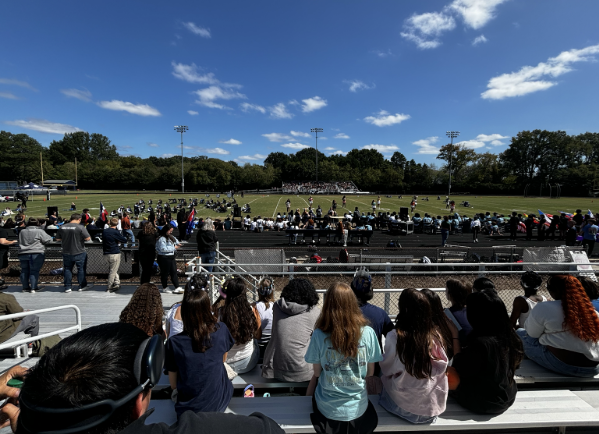State Budget Passes Law but Teachers Still Fight for More
State budget gets signed after multiple years of waiting. Teachers are not impressed by what it has come upon and are still fighting for better pay.
December 6, 2021
Years have passed, and teachers have not gotten the proper funding for their classrooms or a raise in their salaries. On November 18th, North Carolina finally signed off on getting a state budget, the last state to get one. The budget impacts how money is spent in North Carolina public schools. Teachers finally received the pay raise and classroom funding they have been waiting for, but it was not as expected. They received an average increase of 2.5% in their pay. An average increase means that all teachers will get a raise, but it might not be the same as another teacher. It all depends on how long a teacher has been working. Newer teachers get a higher percentage raise than teachers who have been teaching longer. Some teachers, mostly in the range of working from fifteen to twenty-four years, barely get anything. For example, a teacher who has worked five years makes a $40,000 salary and receives a 5% pay increase, while a teacher who has worked twenty years makes a $60,000 salary but only receives a 1% pay increase.
The North Carolina Association of Educators (NCAE) is an organization established to help get better pay and create better environments for teachers. Kristin Beller, Wake NCAE President, is strongly passionate about this subject and has some things to say: “ I don’t think what they have done is fair at all. This is making it harder for teachers to see that this is where they want to stay.” Many teachers have quit their jobs because of how much they are getting paid. Teachers are working extra hard, and this period has not been the easiest for them. They take time out of planning just to make sure kids are getting the right education needed, and this budget is not helping out with that. The budget also falls short for the other staff members such as teacher assistants, bus drivers, and custodians. Cafeteria workers and bus drivers are working extra shifts and still not making a living wage. There is also a shortage of substitutes, and teachers have to cover classes during their planning periods. Especially here at Millbrook, classes are sent to the auditorium because there are not enough substitutes to cover classes.
The state budget is a key part of the classroom budget as well. Each year, the band program at Millbrook only gets one thousand dollars to spend on instruments and other activities for the band. That barely covers one instrument. Mr. Payne, the band teacher here at Millbrook, says, “I would say in some ways it creates added pressure to fundraise through booster programs, versus what we would traditionally get from a school.” Schools have to rely on fundraisers to provide money for their schools, while the state could be providing that money. This budget was an improvement, but schools still fall short of being fully funded.












